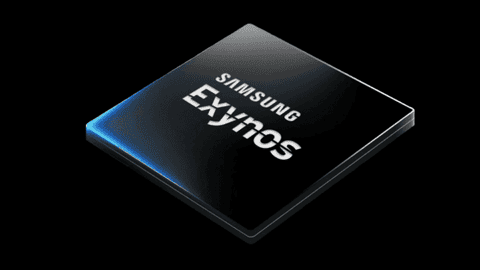In recent years, Samsung has become increasingly reliant on Qualcomm chipsets, particularly for its high-end smartphones. While this partnership has been profitable, it also represents a significant cost for the Korean tech giant. To address this issue and potentially improve its market competitiveness, Samsung is strategically shifting its focus toward developing and utilizing its own Exynos processors.
Samsung Ramps Up Exynos Chipset Development to Reduce Reliance on Qualcomm
A History of Qualcomm Dominance
Previously, Samsung’s flagship foldable smartphones exclusively used Snapdragon chipsets from Qualcomm. Similarly, the Galaxy S series often featured Qualcomm SoCs (System-on-Chips) in certain markets. The global launch of the Samsung Galaxy S23 marked a turning point, as it was the first time a Snapdragon processor was used universally across all markets for this particular series.
The Rise of Exynos
With the recent launch of the Samsung Galaxy S24, the company has reintroduced its Exynos chipsets in select markets. This trend is expected to continue, with an increasing number of Samsung devices relying on Exynos processors instead of those from MediaTek or Qualcomm.
The decision to prioritize Exynos stems from a strategic cost-saving perspective. Chipsets represent one of Samsung’s highest expenses. A report indicates that the company spent nearly $9 billion on mobile chipsets in 2023, and they aim to significantly reduce this expenditure in 2024.
Challenges and Opportunities
Samsung‘s historical dependence on Qualcomm for high-end chipsets and MediaTek for lower-end options is reflected in the declining shipment figures for Exynos processors. In the fourth quarter of 2023, Samsung shipped only 13 million Exynos-powered smartphones, representing a 48% decrease compared to the same period in 2022. This decline also resulted in a 44% revenue drop for the Exynos division.
To reverse this trend and enhance its market competitiveness, Samsung is determined to leverage Exynos processors more extensively. Rumors suggest that future iterations of the Galaxy S series, such as the S25, might utilize Exynos chipsets globally. This strategy aligns with the recent launch of the Galaxy A35 5G and A55 5G, both equipped with Samsung’s proprietary chipsets.
However, user concerns regarding Exynos performance persist. Historically, some Exynos processors haven’t quite matched the top-tier performance of Qualcomm’s Snapdragon series. To address these concerns, Samsung plans to invest heavily in Exynos development and optimization. Additionally, the company emphasizes that the cost of mobile chipsets has risen by 30% compared to the previous year. Making in-house development a potentially cost-effective solution.
The Road Ahead
Samsung’s renewed focus on Exynos processors signifies a strategic shift towards greater independence and potentially improved profit margins. The success of this strategy hinges on Samsung’s ability to bridge the performance gap between Exynos and its competitors. Consistent investment in research and development, coupled with effective optimization strategies, will be crucial in determining the future of Exynos chipsets and their role within the broader smartphone landscape.
Looking Beyond Costs
While cost reduction is a primary driver behind Samsung’s Exynos push, other potential benefits exist. Greater control over chip design and development could allow Samsung to tailor its processors to specific device needs and functionalities, potentially leading to more optimized performance and improved user experiences. Additionally, a robust Exynos ecosystem could create a more balanced market dynamic, fostering healthy competition among chipset manufacturers.
The Impact on Consumers
The increased adoption of Exynos processors could have a significant impact on consumers. If Samsung successfully bridges the performance gap, consumers might benefit from a wider range of competitive and potentially more affordable smartphone options. However, if performance issues persist, user adoption of Exynos-powered devices could remain stagnant.
Conclusion
Samsung’s strategic shift towards its own processors represents a bold move with the potential to reshape the mobile chipset landscape. The success of this endeavor hinges on Samsung’s ability to address performance concerns and leverage the potential benefits of in-house development. As the company invests in research and development, it will be interesting to see how Exynos processors evolve and how they compete with established players like Qualcomm and MediaTek in the years to come.
